
Math problem solving strategies are a huge component of math instruction. Problem solving should be consistently embedded within quality math tasks, rather than teaching problem solving as an isolated unit. However, math problem solving strategies often need to be explicitly taught to students, especially students who lack a repertoire of problem solving skills.
Math Problem Solving Strategies
Toward the beginning of the school year, I introduce five different problem solving strategies using the printables from this resource in TpT. However, even if you don’t use the materials, you should still be able to gain some useful tips from this blog post!
Draw a Picture
The draw a picture strategy is a math problem solving strategy when students make a visual representation of the problem. This will help you help students SEE how to solve a problem and is easily grasped by learners of all abilities.
Find a Pattern
Looking for a pattern is another strategy that students can use to solve problems. The goal is to look for items or numbers that are repeated or a series of events that repeat. The strategy can be used to solve many math problems and can be used in combination with many other strategies.
Guess and Check
The strategy for the “guess and check” method is to guess a solution and use that guess in the problem to see if you get the correct answer. If the answer is too big or too small, then make another guess that will get you closer to the goal. You continue guessing until you arrive at the correct solution.
Work Backward
To solve a problem by working backwards, we basically want to undo the problem step-by-step. Start at the end of the problem and work through to the beginning.
Make a List
Making a list or a table is a way to organize data presented in a problem. This problem solving strategy allows students to discover relationships and patterns among data. This strategy helps students to bring logical and systematic thinking to the math.
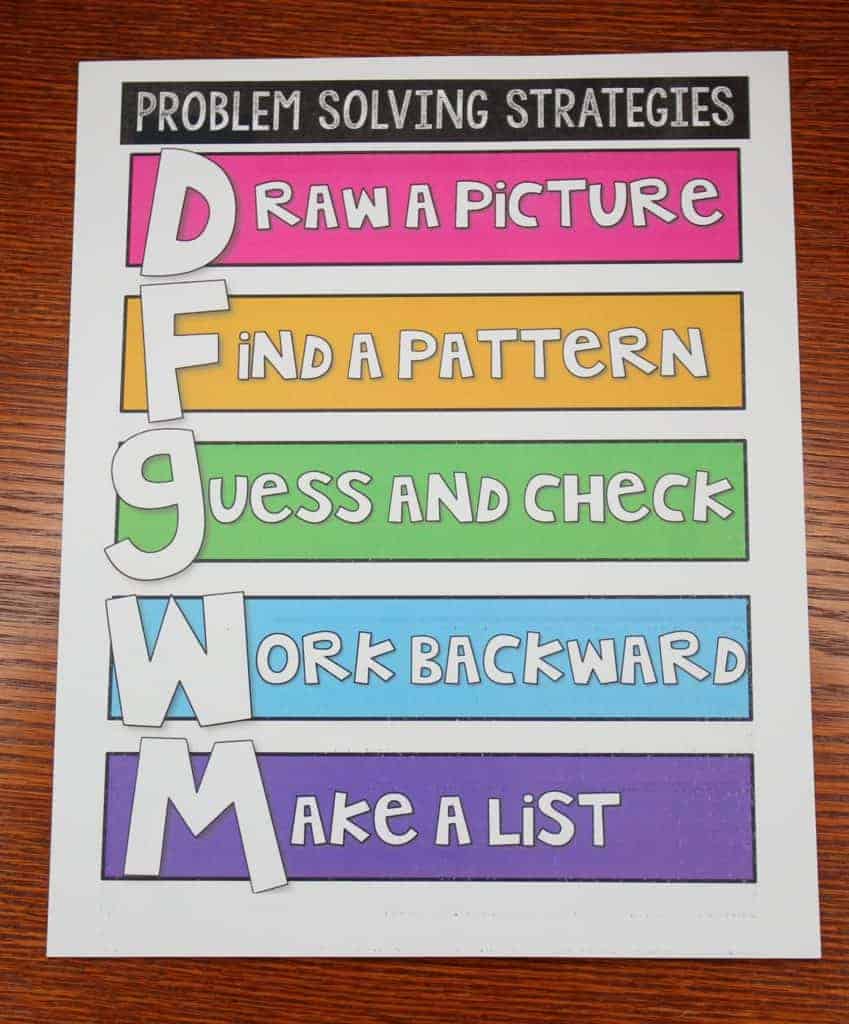
I eventually add Write an Equation to the list, but I typically delay that strategy a bit until I focus on multiple representations in math problem solving. As I explicitly teach these strategies, I add them to a problem solving bulletin board. I’ll add the sixth Write an Equation poster later within that unit.
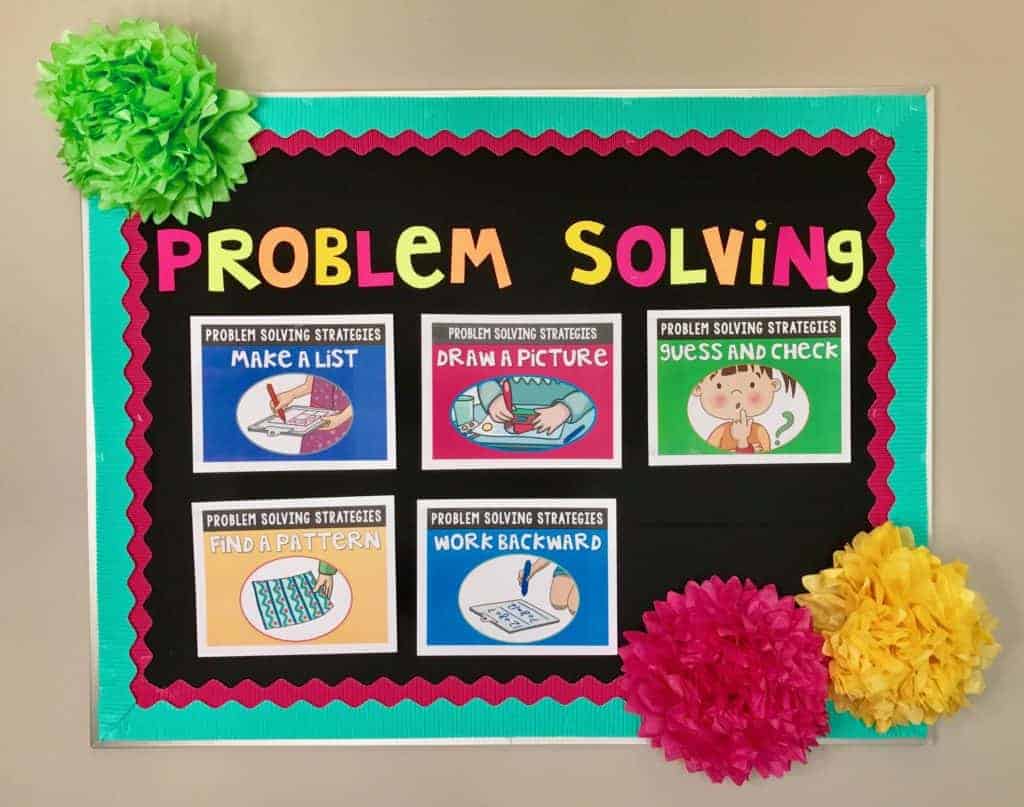
Problem Solving Practice
As I introduce each math problem solving strategy, I give students a worksheet based specifically on that particular strategy. For example, on the day I introduce Word Backward, we will complete one Word Backward worksheet together, and then students will complete one with a partner or independently.
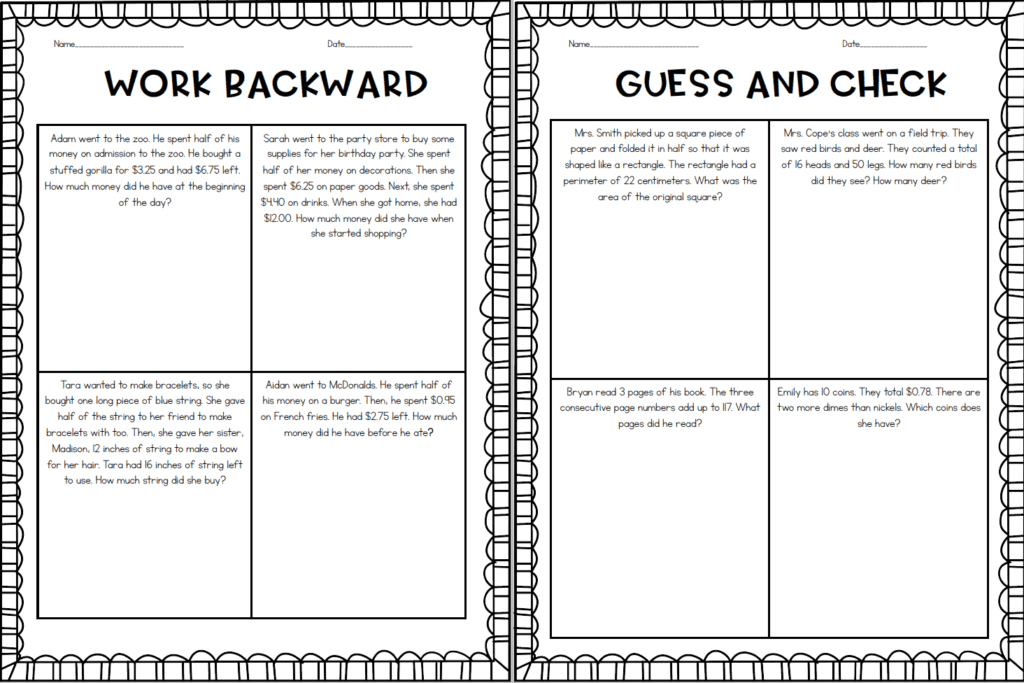
As students learn and practice the different math problem solving strategies, they also add them to their math interactive notebooks. They can reference the examples any time throughout the year.
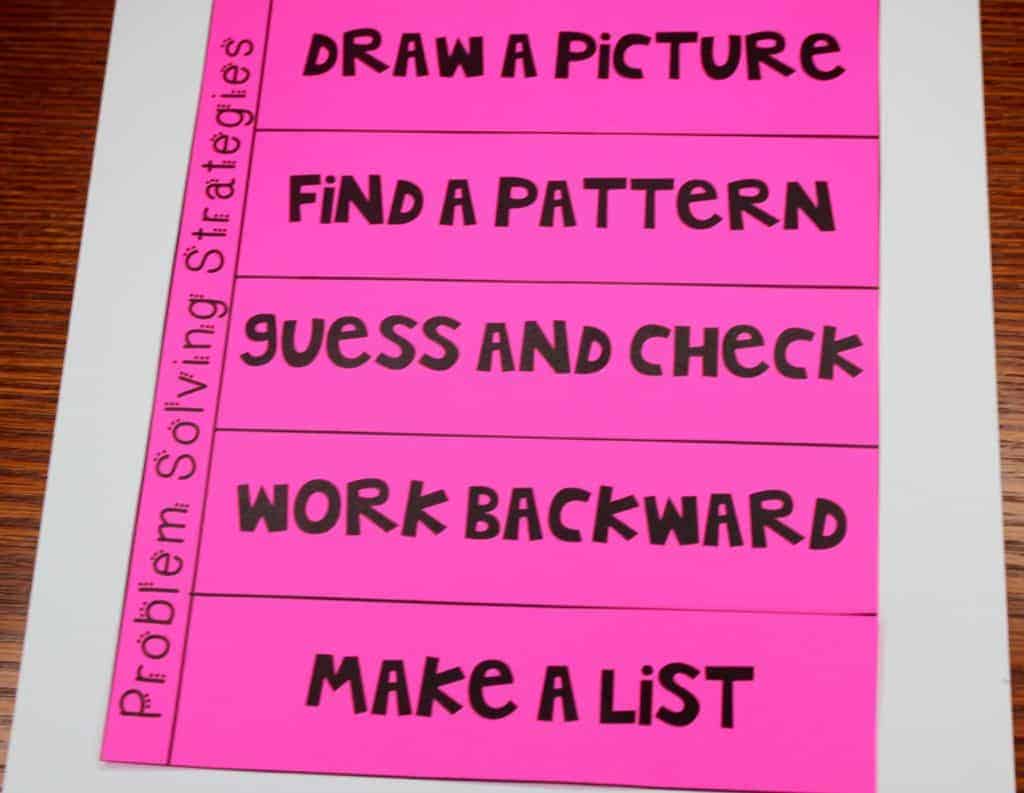
Math Problem Solving Strategies Task Cards
For even more practice, students can complete these math problem solving strategies task cards. These are great for partner work or math centers. When my students complete these cards, they are given which strategy to use. As students develop their problem solving skills this scaffolding will be removed.
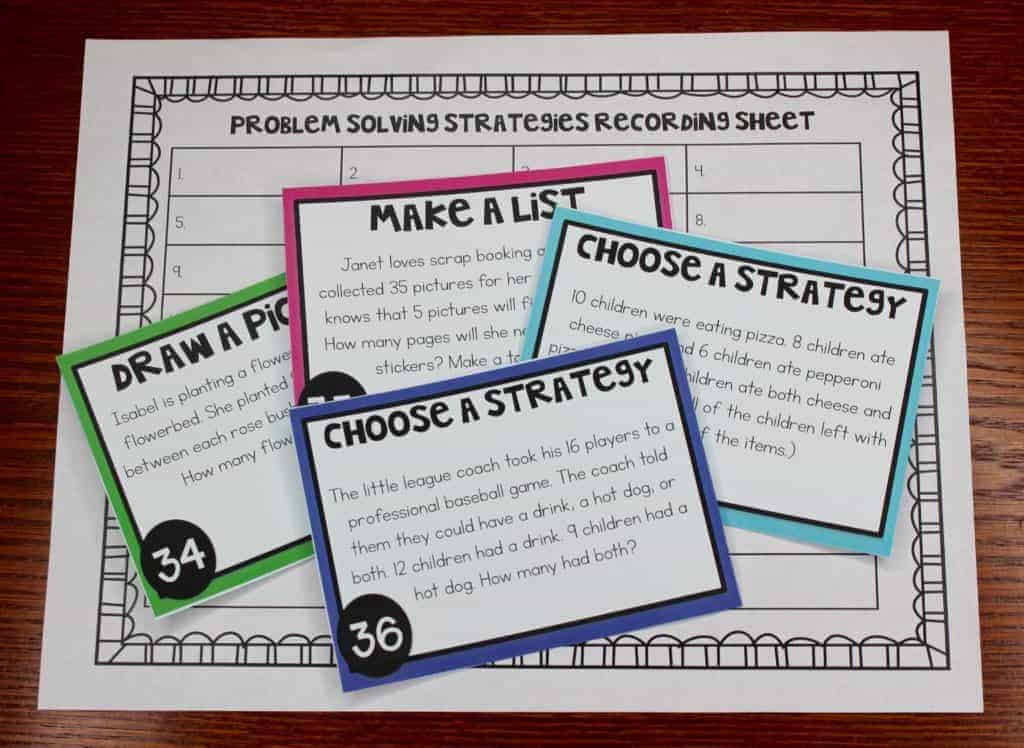
Once students are more comfortable with the problem solving strategies, I will give them problems where they have to determine which strategy to use to best solve the problem. I’ve found that this is a good scaffolding step for students. Throughout the year, students have to apply the strategies to their math tasks within each unit, so there is constant reinforcement of each strategy.
Struggle Time
Teaching these strategies at the beginning of the school year is a great way to prepare students for what I call “Struggle Time”. No matter what group I’m teaching, and no matter what topic I’m teaching the following scenario is inevitable: I explain a task with multiple modes of instruction; I model it; we practice a few problems together; students ask questions as needed; there is an anchor chart or reference somewhere in the room, and the second students start working someone raises their hand and tells me, “I don’t know what to do”. Have you been there before??? I always teach my students that the first five minutes of math workshop they must have “struggle time” before I will help them. I know that initially that sounds harsh, but it’s a great way to foster independence and problem solving. I’ve found that too many students begin to expect or rely on me telling them exactly what to do, rather than experimenting and applying strategies.
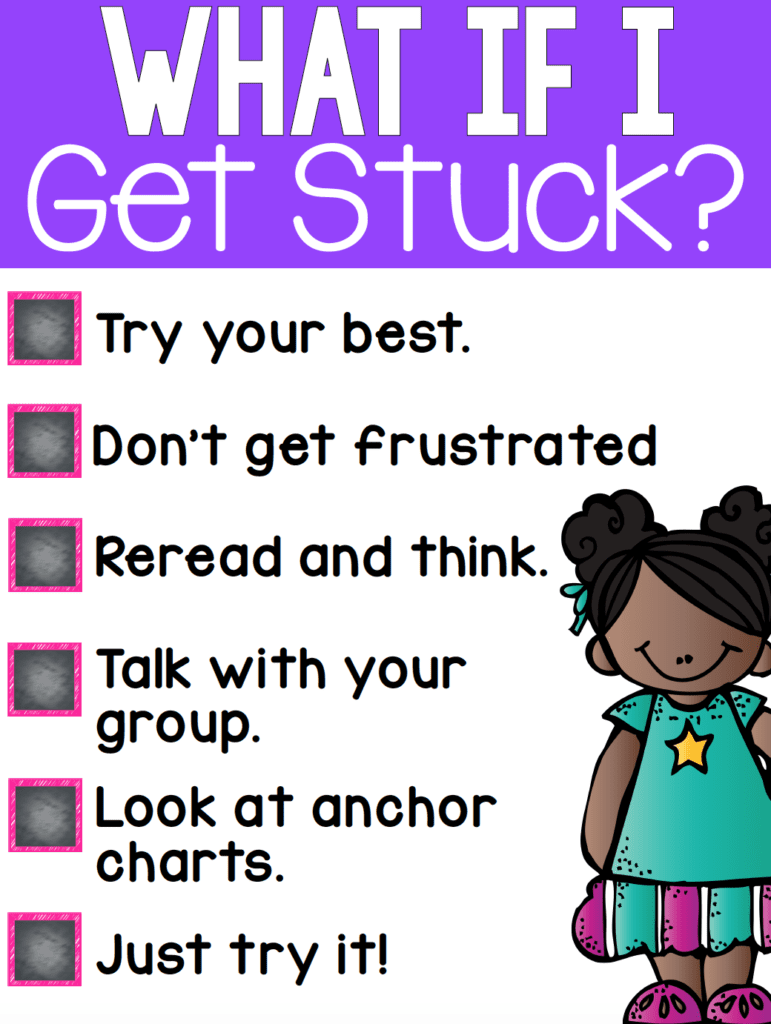
Of course, I do teach students what to do if they get stuck. We also talk a lot about having a growth mindset. Almost inevitably, students surprise themselves during that five minutes and they are able to get going on their own. If they are still stuck after five minutes, I try to guide them toward what to do, rather than to tell them what to do-which is definitely a weakness for me! My tendency is to take over, and I know that’s not helping anyone.
You can learn more about teaching elementary math in this post, which is full of great content! I hope you enjoyed reading about these math problem solving strategies.

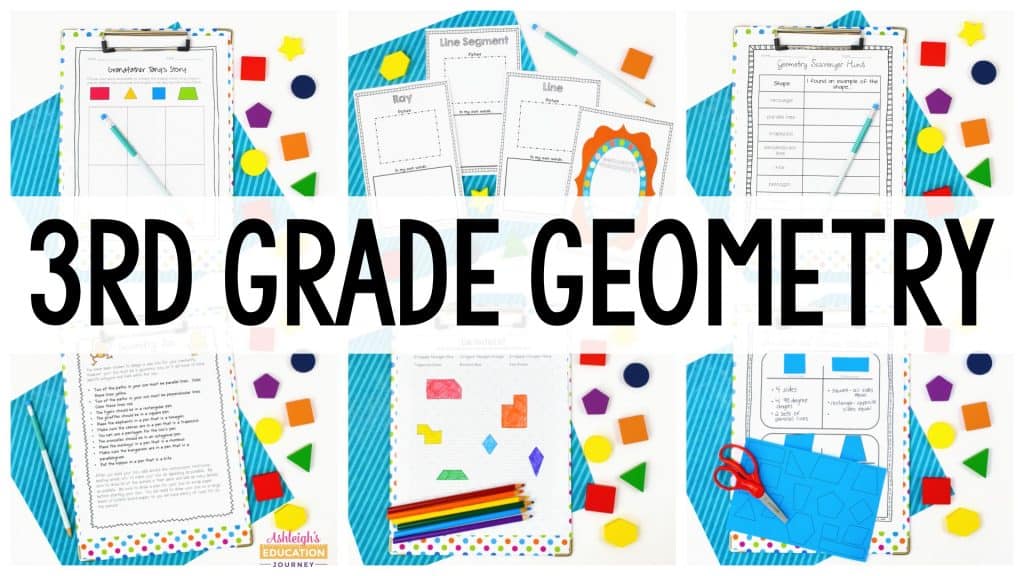

Hi Ashleigh! This is great. Have you ever heard of the book problem solver? It is what we use to work on these strategies.
https://www.amazon.com/Problem-Solver-II-Integrating-Curriculum/dp/0322088089/ref=sr_1_3?ie=UTF8&qid=1498252956&sr=8-3&keywords=the+wright+group+problem+solver
Thank you very much for your sharing. I find your material very useful and interesting.From Peru,
Myria
Hi Ashleigh, Your post is a classic. You made it easy for kids to understand the rules of problem-solving. Finding a pattern most times does the magic. Thanks for the time to produce a good guide for problem-solving. Keep it up.